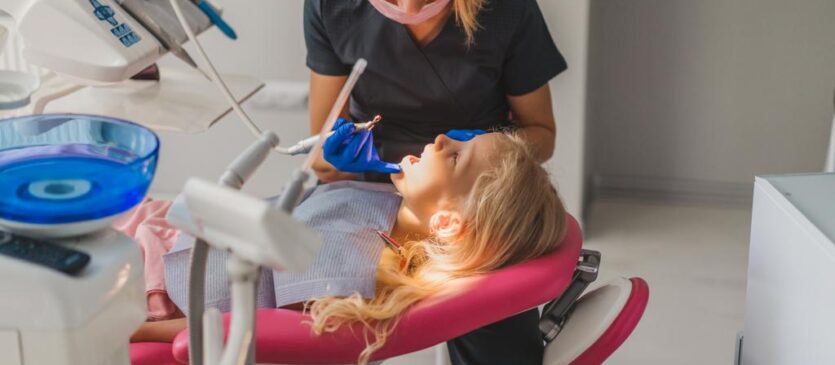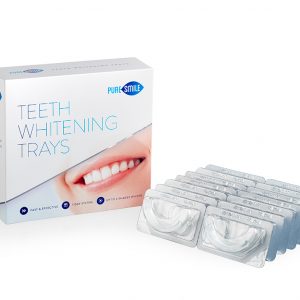Dental care is a vital component of overall health and well-being, regardless of one’s age or background. However, for young participants in the National Disability Insurance Scheme (NDIS), there are unique dental considerations that require special attention. From understanding the specific needs of these individuals to ensuring the right support is provided, dental care in the context of the NDIS demands a comprehensive and tailored approach.
Understanding the Unique Needs of NDIS Participants
Children and young adults with disabilities often face a range of challenges when it comes to dental care. Whether it’s due to physical limitations, intellectual challenges, or a combination of both, these individuals might experience difficulties with routine dental tasks like brushing and flossing. For instance, a child with limited hand mobility may struggle to grip a toothbrush, while another with sensory sensitivities might find the sensation of brushing overwhelming.
Importance of Early Intervention
Early dental intervention is crucial for NDIS participants. Regular check-ups from an early age can help detect potential issues before they become more severe. Given that young NDIS participants might be more prone to dental issues due to medications, dietary challenges, or the physical manifestations of their disabilities, starting dental care early is a proactive way to ensure optimal oral health.
Specialised Equipment and Techniques
Dental care for young NDIS participants often requires specialised equipment and techniques. Adaptive toothbrushes, for instance, can cater to children with limited hand function. There are also specific methods to introduce and maintain oral hygiene routines for children with sensory challenges. Dentists and oral hygienists need to be equipped not only with these tools but also with the knowledge to use them effectively.
Tailored Dental Environment
An inclusive dental environment is essential for NDIS participants. Many children with disabilities can feel anxious or overwhelmed in unfamiliar settings. To cater to their needs, dental clinics should:
- Offer a calm and sensory-friendly environment.
- Use soothing colours and lights.
- Provide distractions like music or videos.
- Schedule longer appointment slots to ensure the child doesn’t feel rushed.
- Ensure accessibility, such as wheelchair ramps and wide doors.
Collaborative Approach
A collaborative approach between parents, caregivers, dentists, and NDIS support coordinators is essential. Parents and caregivers often have in-depth knowledge about the child’s specific needs, fears, and triggers. By sharing this information with dental professionals, they can prepare and adjust their methods accordingly. Moreover, NDIS support coordinators can help families access funding or resources for specialised dental care, if required.
Regular Training and Upgradation
Dental professionals working with NDIS participants should regularly update their training. This ensures that they remain current with the latest techniques, tools, and understanding of the diverse needs of their patients. Additionally, dental clinics can consider collaborating with occupational therapists, physiotherapists, or other specialists who can offer insights and strategies to enhance dental care for young NDIS participants.
Financial Considerations
While the NDIS offers financial support for many aspects of care, families should be aware of their dental coverage. Depending on the participant’s plan, some dental treatments might not be covered, or there may be limits on how much can be claimed. Families should liaise with their NDIS planner or support coordinator to understand the extent of their coverage and any out-of-pocket expenses they might incur.
Emphasising the Importance of Home Care
Apart from professional dental care, home oral hygiene practices are equally essential. Parents and caregivers should be equipped with knowledge and tools to maintain oral health at home. This might involve using specialised equipment, setting reminders for regular brushing and flossing, or even turning oral care into a fun and rewarding activity.
Addressing Dietary Considerations
Diet plays a significant role in dental health. Some NDIS participants might have specific dietary needs or preferences that impact their oral health. Regular consultations with a nutritionist can help ensure that the participant’s diet is both nutritionally adequate and oral-health friendly.
Building Trust and Patience
For many young NDIS participants, dental visits can be anxiety-inducing. Building a trusting relationship between the child and the dentist can significantly reduce this anxiety. This trust can be cultivated through regular visits, positive reinforcement, and ensuring that every dental experience is as comfortable and stress-free as possible.

Dental care for young NDIS participants is multifaceted and requires a tailored approach. By understanding their unique needs, ensuring early intervention, using specialised equipment, fostering collaboration, and building trust, we can ensure that these young individuals receive the best dental care possible. After all, a bright and healthy smile is a universal right, and every child deserves to wear one with pride.






